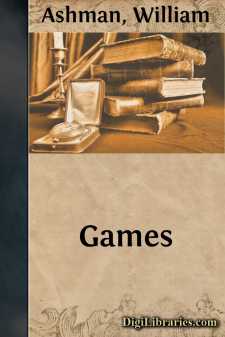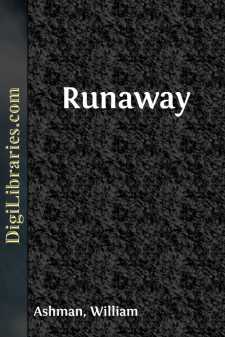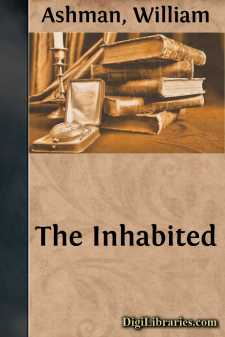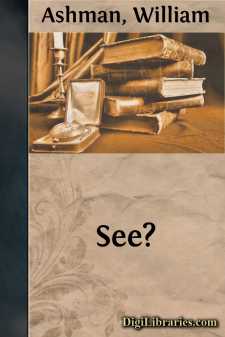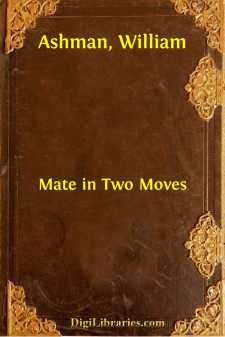Categories
- Antiques & Collectibles 13
- Architecture 36
- Art 48
- Bibles 22
- Biography & Autobiography 813
- Body, Mind & Spirit 142
- Business & Economics 28
- Children's Books 15
- Children's Fiction 12
- Computers 4
- Cooking 94
- Crafts & Hobbies 4
- Drama 346
- Education 46
- Family & Relationships 57
- Fiction 11828
- Games 19
- Gardening 17
- Health & Fitness 34
- History 1377
- House & Home 1
- Humor 147
- Juvenile Fiction 1873
- Juvenile Nonfiction 202
- Language Arts & Disciplines 88
- Law 16
- Literary Collections 686
- Literary Criticism 179
- Mathematics 13
- Medical 41
- Music 40
- Nature 179
- Non-Classifiable 1768
- Performing Arts 7
- Periodicals 1453
- Philosophy 64
- Photography 2
- Poetry 896
- Political Science 203
- Psychology 42
- Reference 154
- Religion 513
- Science 126
- Self-Help 84
- Social Science 81
- Sports & Recreation 34
- Study Aids 3
- Technology & Engineering 59
- Transportation 23
- Travel 463
- True Crime 29
Games
by: William Ashman
Categories:
Description:
Excerpt
onny was playing by himself, which meant he was two tribes of Indians having a war.
"Bang," he muttered, firing an imaginary rifle. He decided that it was a time in history before the white people had sold the Indians any guns, and changed the rifle into a bow. "Wizzthunk," he substituted, mimicking from an Indian film on TV the graphic sound of an arrow striking flesh.
"Oof." He folded down onto the grass, moaning, "Uhhhooh ..." and relaxing into defeat and death.
"Want some chocolate milk, Ronny?" asked his mother's voice from the kitchen.
"No, thanks," he called back, climbing to his feet to be another man. "Wizzthunk, wizzthunk," he added to the flights of arrows as the best archer in the tribe. "Last arrow. Wizzzz," he said, missing one enemy for realism. He addressed another battling brave. "Who has more arrows? They are coming too close. No time—I'll have to use my knife." He drew the imaginary knife, ducking an arrow as it shot close.
hen he was the tribal chief standing somewhere else, and he saw that the warriors left alive were outnumbered.
"We must retreat. We cannot leave our tribe without warriors to protect the women."
Ronny decided that the chief was heroically wounded, his voice wavering from weakness. He had been propping himself against a tree to appear unharmed, but now he moved so that his braves could see he was pinned to the trunk by an arrow and could not walk. They cried out.
He said, "Leave me and escape. But remember...." No words came, just the feeling of being what he was, a dying old eagle, a chief of warriors, speaking to young warriors who would need advice of seasoned humor and moderation to carry them through their young battles. He had to finish the sentence, tell them something wise.
Ronny tried harder, pulling the feeling around him like a cloak of resignation and pride, leaning indifferently against the tree where the arrow had pinned him, hearing dimly in anticipation the sound of his aged voice conquering weakness to speak wisely of what they needed to be told. They had many battles ahead of them, and the battles would be against odds, with so many dead already.
They must watch and wait, be flexible and tenacious, determined and persistent—but not too rash, subtle and indirect—not cowardly, and above all be patient with the triumph of the enemy and not maddened into suicidal direct attack.
His stomach hurt with the arrow wound, and his braves waited to hear his words. He had to sum a part of his life's experience in words. Ronny tried harder to build the scene realistically. Then suddenly it was real. He was the man.
He was an old man, guide and adviser in an oblique battle against great odds. He was dying of something and his stomach hurt with a knotted ache, like hunger, and he was thirsty. He had refused to let the young men make the sacrifice of trying to rescue him. He was hostage in the jail and dying, because he would not surrender to the enemy nor cease to fight them. He smiled and said, "Remember to live like other men, but—remember to remember."
And then he was saying things that could not be put into words, complex feelings that were ways of taking bad situations that made them easier to smile at, and then sentences that were not sentences, but single alphabet letters pushing each other with signs, with a feeling of being connected like two halves of a swing, one side moving up when the other moved down, or like swings or like cogs and pendulums inside a clock, only without the cogs, just with the push....


